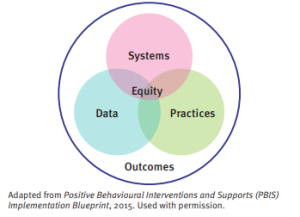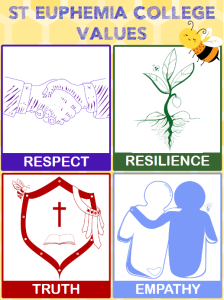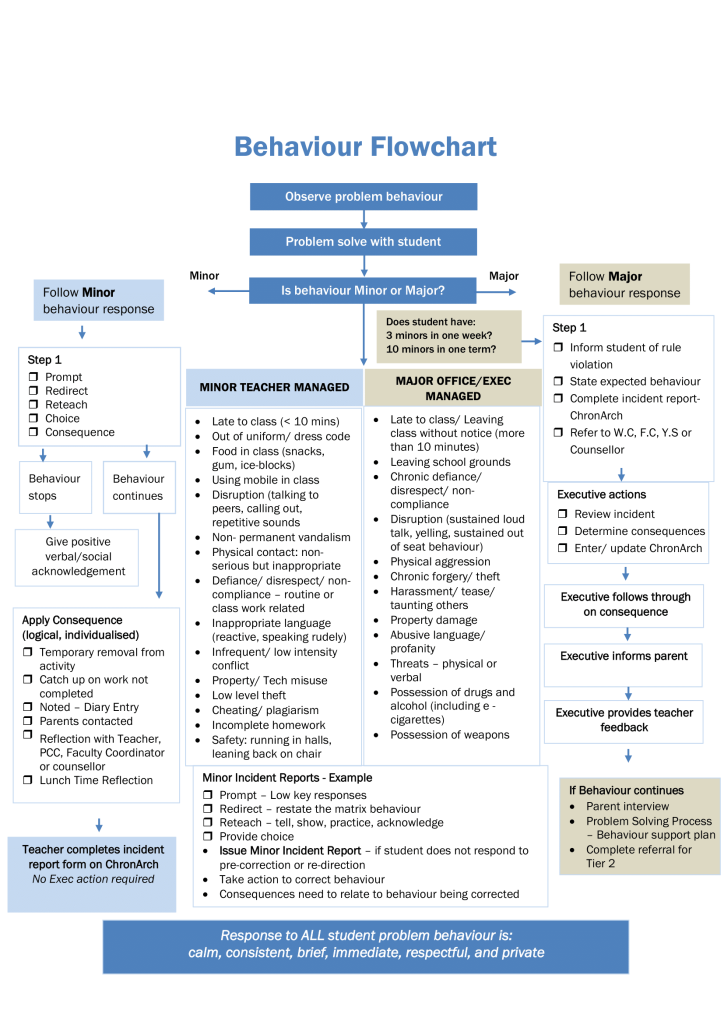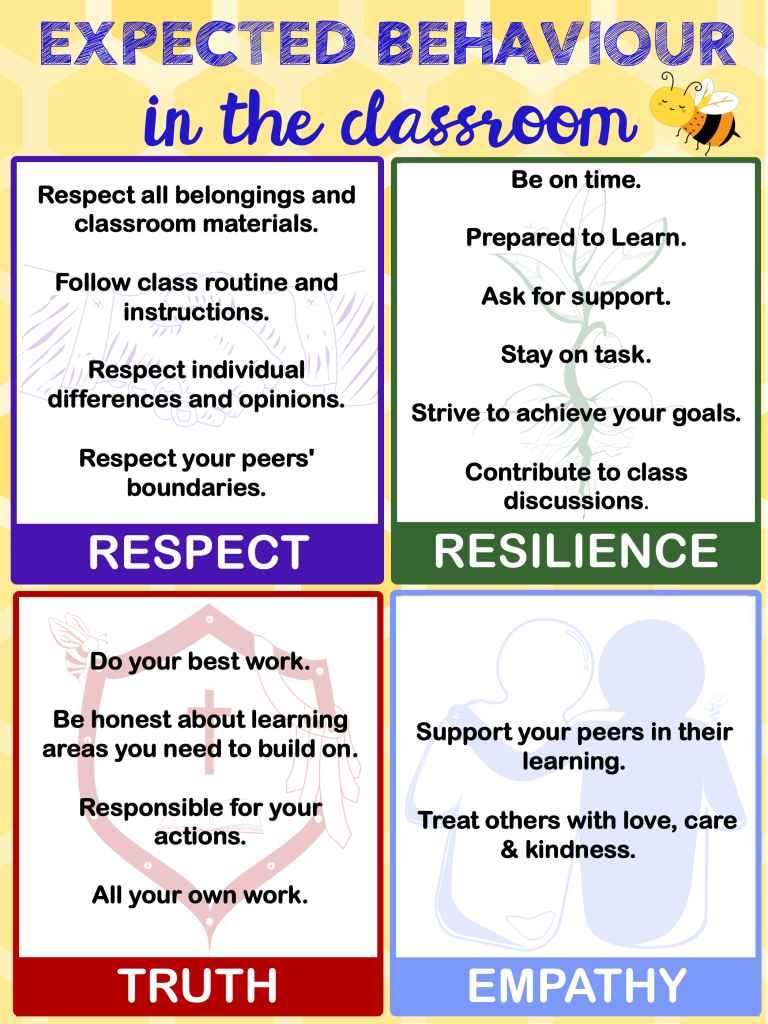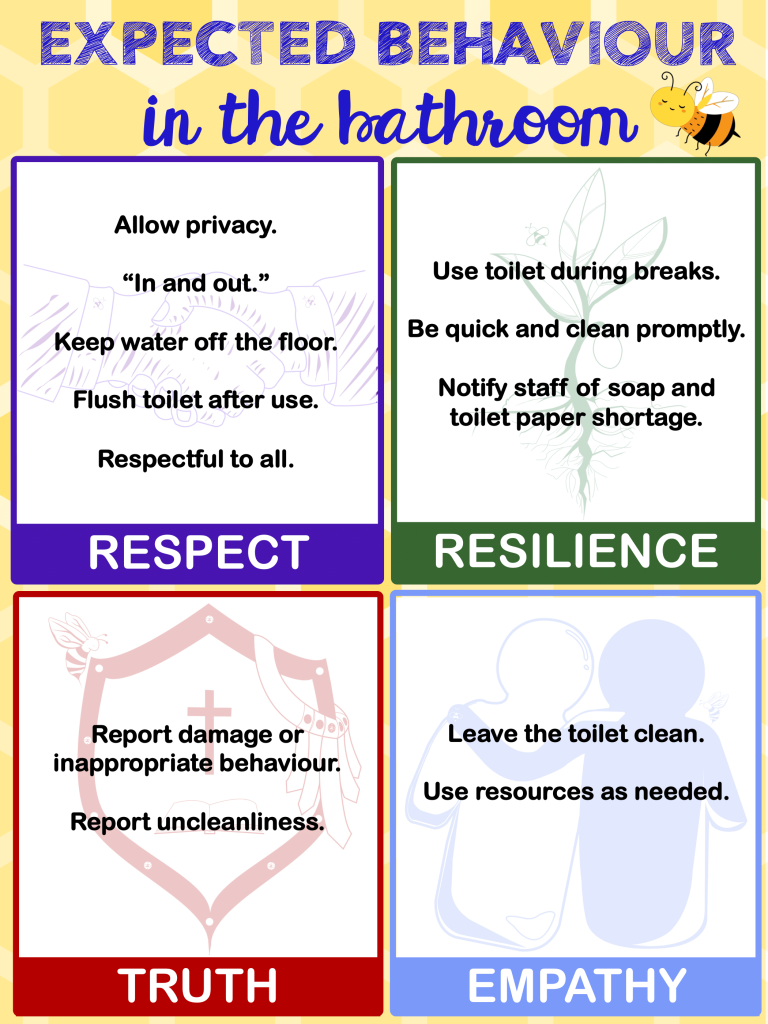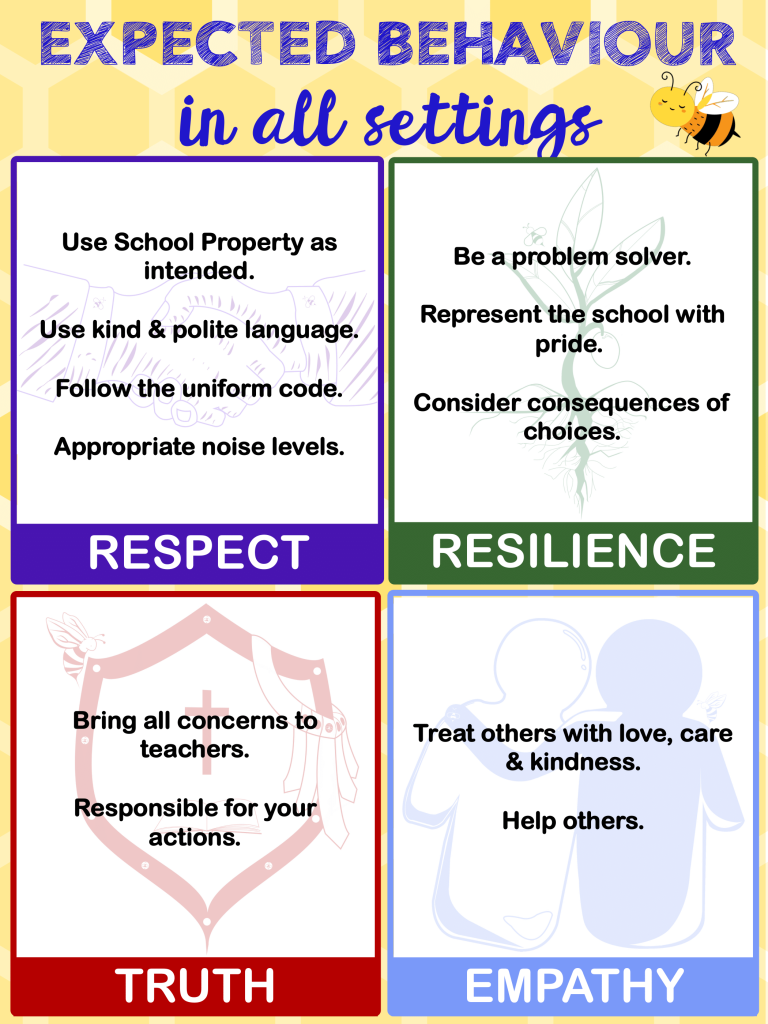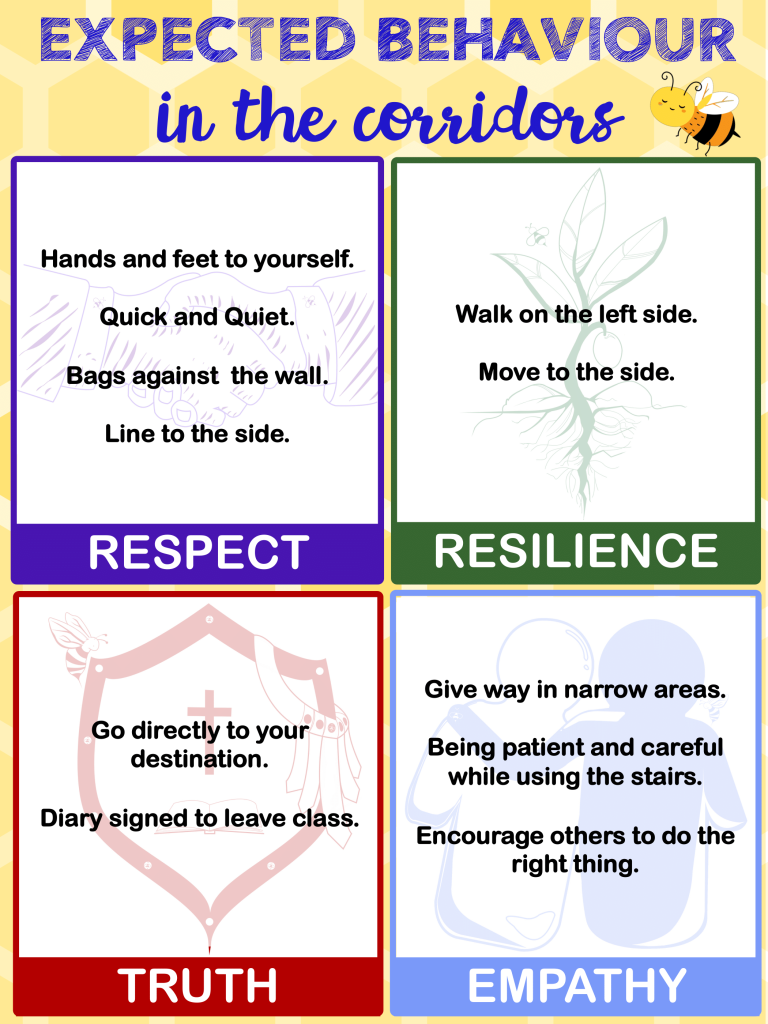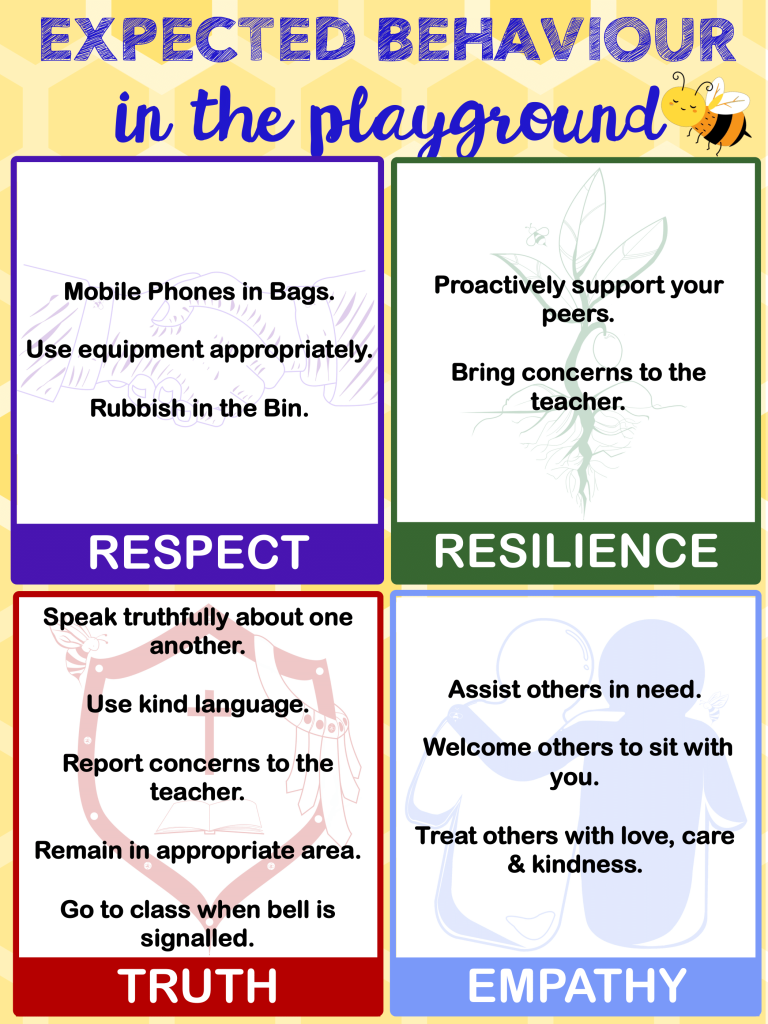Learning at St Euphemia College
We pride ourselves on a wide range of curriculum opportunites for our studentsIt’s not the curriculum that we offer that sets us apart, it’s the manner in which it’s delivered
Any school can teach a curriculum. Amazing schools like ours is full of teachers actively and passionately exploring the possibilities of making their teaching practice more innovative, engaging and fun at every turn. This is the single ingredient that drives the most growth in our students.
The success we attain is not only evidenced by the assessment data – but it’s seen through the smiles and joy we see on our student’s faces as a concept is grasped. This is the indefinable element that drives us as teachers to produce and grow our own teaching skills year in, year out.
PBIS (Positive Behavioral Interventions and Support)
Our approach to welfare and supporing students across our school.
Literacy (P-12)
Literacy provides the tools that lay strong foundations for the construction of a solid future and success. It empowers students to make meaning of themselves and the world around them, as they develop into confident and effective communicators.
Numeracy (P-12)
Numeracy across K to 12 aims to: improve their confidence and adopt a growth mindset towards Mathematics.
Greek (P-12)
At St Euphemia College we promote our Hellenic heritage through the study of Modern Greek. We believe in promoting the ancestral customs and culture of our students through activities such as Greek Dancing. Studying a language empowers the mind and develops the brain.
Religious Studies (P-12)
Studies of Religion recognises religion as a central part of the human experience and a component of every culture. An understanding of religion provides a perspective for the human view of reality and deals with daily living as well as the ultimate source, meaning and goal of life.
Science (P-12)
Why do stars twinkle? Why do some objects float and others sink? How do earthquakes occur? How are icebergs formed? Children have a sense of wonder and curiosity about the natural and human-made world.
ICT (P-12)
Technology is affecting every aspect of our world today. Over the last few decades, Information Communication Technologies have proven to be a driving force.
Human Society and its Environment (P-12)
Human Society and Its Environment (HSIE) is the study of how humans interact with the world, how society operates and how it’s changing. Students develop a deep knowledge and sense of wonder, curiosity and respect for places, people, cultures, events, ideas and environments throughout Australia and the world.
Personal Development, Health & Physical Education (P-12)
The Personal Development, Health and Physical Education (PDHPE) department at Saint Euphemia College provides both staff and students with opportunities to enhance their own and others’ health, safety, wellbeing and resiliency.
Technological & Applied Studies (P-12)
Technology Mandatory engages students in design and production activities as they develop solutions to identified needs and opportunities.
Student Wellbeing
At St Euphemia College, we understand that wellbeing is the foundation of optimal learning. Our approach is to provide students with the opportunity to develop their growth mindset.
Creative Arts / Music, Drama & Visual Arts (P-12)
At St Euphemia College, we aim to develop a student’s competence, imagination and skills in designing and performing creatively and practically, while also encouraging appreciation and self expression in Visual Arts, Music, Drama and Dance.
Visible Learning
Visible learning is a ground-breaking concept developed by education researcher John Hattie (Professor of Education and Director of the Melbourne Education Research Institute at the University of Melbourne). It occurs when teachers see learning through the eyes of students and help them become their own teachers. There are 3 phases of Visible Learning:
1. Surface Leaning: when students are initially exposed to concepts. It provides the foundation.
- Deep Learning: students consolidate their understanding and apply their learning
- Transfer Learning: students take the knowledge and skills they learned and apply what they know to new ideas and situations.
Visible learning means that students are taught to know what they need to learn, how to learn it and how to evaluate their own progress. Using the Visible Learning approach, teachers become evaluators of their own impact on student learning. A simple example is undertaking discussion and questioning sessions in the classroom or giving students feedback very soon after a project is completed so they can use what they learned to improve their learnings going forward.
By Chrissy Glavas Year 7 2022

